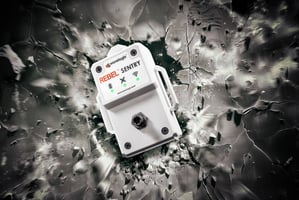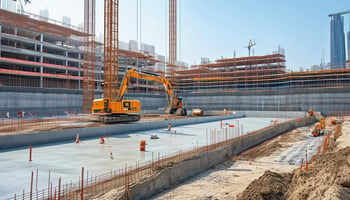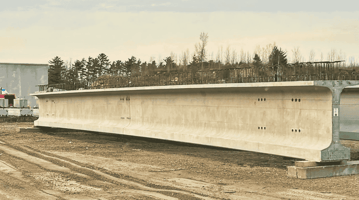In 2021, Wavelogix partnered with INDOT and Purdue University to enhance road and bridge...
How the Rebel System Enhances Sustainability, Reduces Carbon Footprints, and Optimizes Concrete Performance
Sustainability is becoming a priority in the construction industry, with increasing focus on reducing carbon footprints and improving efficiency. The Rebel™ Concrete Strength Sensing System by Wavelogix offers an innovative solution to achieve these goals. Here’s how the Rebel™ concrete sensors support sustainability efforts, making them an ideal choice for de-carbonization advocates, engineers, and construction professionals.
1. Real-Time Concrete Monitoring Reduces Waste
Traditional methods of monitoring concrete strength require multiple, repetitive destructive cylinder tests, resulting in 150 pounds of concrete waste. The Rebel System eliminates cylinder testing by providing real-time, in-place, continuous strength and temperature measurements for 28 days or longer. This reduces resource consumption and minimizes the environmental footprint associated with producing and disposing of test samples and cylinders.
2. Optimized Construction Timelines and Reduced Carbon Emissions
The RebelTM System allows construction teams to make informed decisions by delivering precise, real-time data on concrete strength, accelerating project timelines. Faster construction means less equipment idle time and reduced energy consumption on-site, directly contributing to lower carbon emissions. Determining when concrete has reached sufficient strength through concrete x ray data reduces unnecessary delays and additional labor, enhancing overall efficiency.
3. Adaptable Technology for a Variety of Concrete Mix Designs
Unlike current maturity sensors that rely on pre-established temperature-based curves, the RebelTM System is versatile and adapts to any concrete mix design. This flexibility means that sustainable, low-carbon concrete mixtures—such as those incorporating recycled materials or alternative binders—can be monitored accurately. By supporting the use of environmentally friendly concrete options, the RebelTM System encourages greener construction practices.
4. Reduction in Cement Overuse
Cement production is a significant source of CO2 emissions. The Rebel System helps construction teams optimize cement usage by providing precise strength measurements through multiple metrics, not solely concrete temperature. This precision ensures that only the necessary amount of cement is used, avoiding over-engineering and further reducing the project’s carbon footprint.
5. Enhanced Durability and Long-Term Performance
The real-time data the RebelTM System provides allows for better concrete quality control, ensuring that each structure is cured under optimal conditions. This leads to improved durability and performance of concrete structures, reducing the need for repairs and maintenance. By extending the lifespan of infrastructure, the RebelTM System supports sustainability by minimizing the materials, energy, and emissions associated with future maintenance.
6. Data-Driven Insights for Sustainable Construction Planning
The RebelTM System’s integration with a data analytics platform, along with advanced concrete GPR technology, gives construction professionals actionable insights to optimize material usages. This data-driven approach improves project efficiency, allowing for better maturity predictions and more sustainable planning, ensuring that every stage of the construction process aligns with environmental objectives.
Conclusion
The Rebel System is a powerful tool for anyone committed to sustainability in the construction industry. It plays a crucial role in minimizing the environmental impact of construction projects by reducing waste, optimizing maturity timelines, supporting sustainable concrete mixes, and enhancing the long-term performance of structures. Whether you're an advocate for sustainability, an engineer, contractor, test firm, or other professional in the construction sector, the RebelTM System offers tangible benefits that align with modern sustainability goals.




